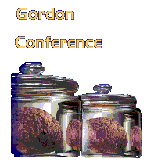


This conference provided a focused program dealing with two specific challenges in the teaching of materials science at the introductory college level:
- How to make introductory materials courses more representative of the dynamic nature of the developing field of materials science, and
- How to make introductory materials science courses the most exciting, interesting, challenging, and motivational courses a student can take.
Presentations and discussions can be separated into (a) what to teach and to whom, which occupied about 40% of the time of during the program, and (b) discussion and examples of methodology that can be used to enhance MSE education. A summary of this discussion is found below, along with the strategies developed for future development of the field. In keeping with the Gordon Conference tradition, no references are made to specific individuals. A listing of attendees, links to related web sites and the results of the discussion sessions ("Q and A") are also provided on this web site.
I. Focus on what to teach and to whom:
Everyone's goal is a well educated MSE student. This can be the engineering student, the MSE major or the general student, depending on one's outlook. In all cases it is important to have a blueprint on what to teach and how. Some of the points made are as follows:
- Chemistry education is a useful model--add exciting hands on topics using everyday materials and exciting new development.
- Educational breadth is needed--students must learn the basics but also writing, communication and teamwork to prepare students for real jobs.
- MSE often omits too much engineering. They need exposure to real engineering practice and on solving real problems. This creates interest also.
- There is a gap in basic fundamentals taught to students-they need technological literacy in addition to scientific literacy. We need to remember that technology leads science, not vice versa.
- MSE is a creative subject. Students need conceptual tools to address creativity and to provide creative answers to well defined problems such as the development of new functional materials, the incorporation of life science ideas into MSE, etc, We need to remove the barriers to creativity.
- MSE can be a very attractive area to students if MSE is linked to society and to real everyday materials. Use familiarity with materials as a start, develop curiosity and interest. Work with high school students, and with freshmen rather than sophomores (one University doubled its enrollment by focusing on freshmen). And the general student can be excited by MSE concepts as has been shown at several Universities. Remember that science encountered in life is science remembered for life.
Many new and improved concepts in teaching were presented and discussed. New technology can be used to advantage but not necessarily to completely replace current methods. In all cases, the point was made repeatedly that we must assess any and all new methodology to determine its impact and value to student learning. Areas discussed included:
- Case study methods, with a variety of examples. This means less lecturing, more guided learning with the aid of CDs and internet materials.
- The use of well defined learning objectives along with a specific organizational structure for a course. This helps the students and the instructor focus on the most important points.
- Problem solving emphasis, with focus on real engineering problems, perhaps with team based projects, to develop interest and personal involvement in learning.
- Multi-media course and software development. A variety of software is available and more is under development (see separate list of web sites and software-and send your nominations to add to the list!) It was emphasized that the MSE instructor should probably not be the software developer (especially if the instructor is wanting tenure) due to the time needed for such development. But the instructor needs to work closely with the software developer to ensure quality and consistency in the product, along with ease of use.
- Cooperative learning styles, with small groups engaged in active learning. This makes the student an active participant in learning.
- Demonstrations that can be incorporated in a lecture to enhance student interest. A web site is under development (see web site listing) with a set of demonstrations, and input is requested.
MSE needs a national strategy to come to be understood as a creative, practical field that marries science and technology. Some parts of this strategy include
- Development of the web site that explains in detail the field of MSE as a career. This has been done and is currently available (see web site list).
- Collection and classification of available curricula in the field to allow interested instructors to find and utilize modules and units that have been developed previously. This is under way in a new project funded by NSF (more information to come on this). Other parts of the strategy need to be developed. Committees focused on certain areas are being formed as part of the follow-up to this conference. Their areas are:
- Develop a coordinated series of educational programs in the MSE area, with input from and cooperation from all interested professional and technical societies and groups. This may be divided into Engineering and Science groups.
- Develop a MSE "toolkit" for outreach programs-a standard set of materials that can be available as needed for talks to groups.
- Develop a set of faculty and industry practitioners who can give talks on materials and materials education-the "Experts on Call."
- Develop and carry out K-12 outreach programs.
- Develop and carry out general population outreach programs.
Dr. Tom Stoebe Materials Science & Engineering University of Washington Box 352120, Seattle, WA 98195-2120 Tel:(206)543-7090 Fax:(206)543-3100